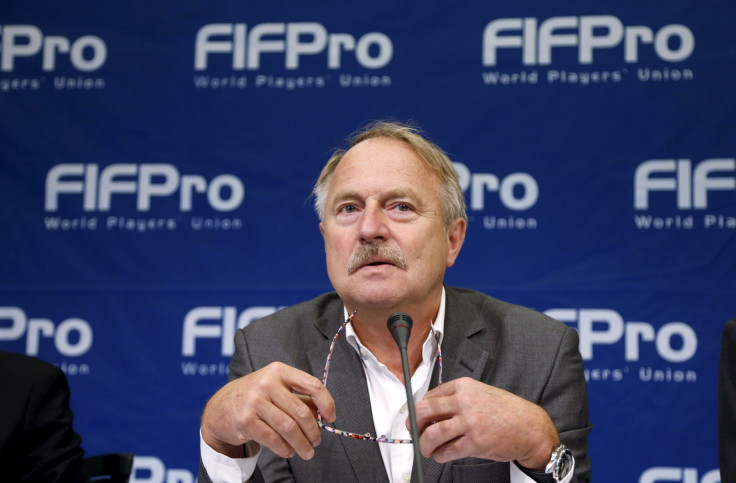FIFA Transfer System: Players' Union FIFPro Files Legal Challenge Against Current Model

FIFPro, the international soccer players' union, lodged a formal legal challenge against FIFA Friday which asserts the sport’s transfer system is unjust to its players. Filed in Brussels with the European Commission, the complaint alleges the system, which trades players between soccer clubs for lucrative transfer fees, restricts player freedom and grants big-budget teams an undue advantage over smaller clubs.
“We’ve tried to solve this problem internally with FIFA and UEFA but I am 100 percent convinced that they have left us with no choice,” FIFPro’s general secretary Theo van Seggelen told the Guardian. “I have been used to negotiating my whole career, with FIFPro and the Dutch union. But it has come to an end.”
The players' union submitted its complaint weeks after the English Premier League, arguably the world’s preeminent professional soccer league, saw record spending in its summer transfer window. From July 1, 2015 to September 1, 2015, Premier League clubs spent about $1.3 billion ( £870 m illion), the BBC reported. Manchester City alone spent about $240 million (£154 million) on high-profile deals, including the signings of former Liverpool winger Raheem Sterling and German midfielder Kevin De Bruyne.
Transfer system could be outlawed if Fifpro wins Fifa legal action | @owen_g http://t.co/XoatQ64NWj (Pic: Getty) pic.twitter.com/bl8HwIoBkI
— Guardian sport (@guardian_sport) September 17, 2015FIFPro’s complaint argues that, as presently constructed, FIFA’s transfer market system is a violation of European competition law. Wealthy clubs are able to offer massive transfer fees to secure the world’s best talent, while smaller teams have little choice but to sell their star players to remain competitive. The union asserts players have been reduced to commodities, with little contract stability. The current transfer system has been in place since 2001.
The players' union seeks several key reforms, such as allowing players who have not been paid for more than 30 days to terminate their contracts with due notice and severance pay for players whose contracts are terminated without proper cause, the BBC reported. FIFPro represents 65,000 players worldwide.
Van Seggelen said a successful court challenge to the transfer market system could have a positive effect similar to that of the Bosman ruling in 1995, when the European Court of Justice ruled players must be allowed to move to new teams once their contracts expired, without the need for a transfer fee. The European Commission is not expected to decide on the complaint for six months to a year, according to the Guardian.
“If we win this case and the European Commission declares [the current transfer market] illegal, it will be like what happened after Bosman,” van Seggelen said. “They have to change it. And if they don’t do it, there will be a declaration of objectives where they have to change it by a certain deadline.”
© Copyright IBTimes 2025. All rights reserved.






















